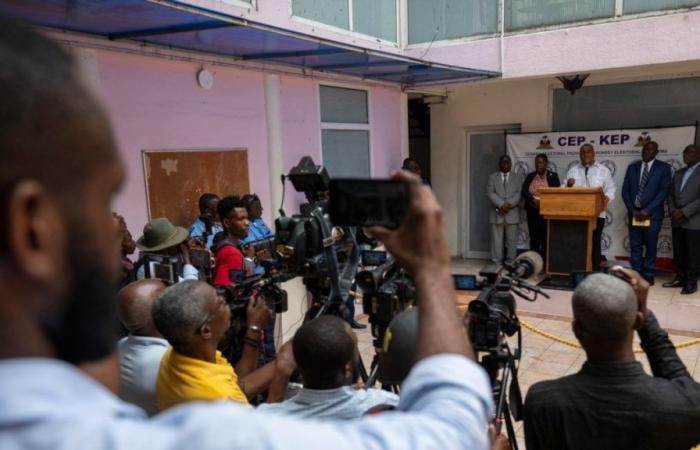The threats and risks to journalists and press freedom continue to increase, journalists said during a discussion organized by the Atlantic Council, in association with cnn.
Jason Marczak, vice president and Senior Director of the Latin America Center at the Atlantic Council, also recalled that the Committee to Protect Journalists has called Mexico the most dangerous country for the press in the Americas, but also emphasized “the repression of freedom of expression, the closure of media, the imprisonment of journalists and non-journalists in Venezuela and Nicaragua”, in addition to the crisis for the profession in Cuba and the recent assault on a media outlet in Ecuador.
“In many countries, journalists are attacked or harassed,” Marczak emphasized.
The conflicts experienced in countries like Venezuela and Haiti, the panelists emphasized, are clear examples of this.
For Luz Mely Reyes, founder of Effect Cocuyo, she emphasized that, in 25 years, the political system has considered journalists as its enemies: “We have suffered harassment against journalists, judicialization, censorship” and, in less than a year, “some 400 media outlets have closed.”
In the case of Nicaragua, Juan Lorenzo Holmann Chamorro, General Manager of the newspaper La Prensa, in his country, “journalists are the enemy” and whoever says that practicing this profession “will immediately go to jail and not only to jail, they will be kidnapped by the government and thrown into a prison and then sentenced to whatever.”
In his case, after being imprisoned, he was Sent to the United States, along with hundreds of political prisoners: “What they did was in February and they put us on a plane, they sent us to the United States. They took away my nationality. Well, the documents or whatever and then they took me off the public record. So I don’t exist. My daughters don’t have a father. “My wife doesn’t have a husband.”
The crisis in Haiti
David Culver, CNN senior national correspondent, described Port-au-Prince, a city with the 80% of gang control, “it’s wild.” “It is absolutely illegal. And we use the term post-apocalyptic… I mean, you drive by these vehicles that are totally bombed, and yet people are living in the middle of it. So it’s not just the territory that results after a bombing. “They are people’s homes today.”
For his part, Guillermo Galdós, cLatin America correspondent for Channel 4 News, who also knows this terrain, pointed out that upon arriving at the border, in the Dominican Republic, he saw the latent humanitarian crisis: “Many people were being deported and we saw many people crossing. And I was surprised to see a pregnant lady who was being deported and almost fainted and then we began to inform ourselves with different organizations about how these women were being rejected in Dominican hospitals.”
Lack of attention
For Franco Ordoñez, White House correspondent
NPR, sometimes in the United States, “the American media also loses sight of that connection to a region that is so important” and “you can’t dismiss the challenges they face in the world.”
“For 25 years, the United States has been struggling to meet the challenges in the Middle East and it remains a major challenge. China continues to be a growing world power when it comes to Latin America. This is an area that, perhaps, the United States takes for granted,” she noted.
Resilience and resistance
For Reyes, despite the different challenges experienced in Venezuela, there are different digital media that continue working to resist, and maintain the responsibility of doing our work with the communities and that is why I say that we continue doing journalism no matter where we are, the situation we are going through now.”
Although moving forward in their environment has been challenging, they have learned “to survive in this type of challenging environment and change the environment.”
In the case of La Prensa, the manager remembers that they went from hundreds of colleagues working in the media and now there are 47, 20 of them in the editorial office: “I am willing to go to the end to sustain it. This is the light that the government is blowing so hard to extinguish. I mean, we are standing and the flame is alive,” via Grants and Savings Account.
“We are in a very difficult situation. But we are holding back and we have a lot of faith in God, God and the hope that people will turn their heads towards us and understand that keeping journalism alive in Nicaragua and other countries is very important,” added Holmann Chamorro.
“Our job is to destroy fake news or stories that authoritarian regimes are trying to build on their own systems. But that cannot be done without the financial situation supporting it,” concluded Juan Lorenzo.
Connect with the Voice of America! Subscribe to our channels Youtube, WhatsApp and to newsletter. Turn on notifications and follow us on Facebook, x and instagram.


